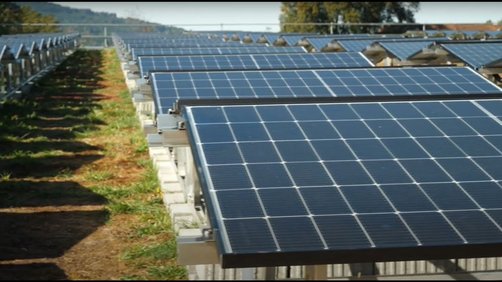- 06.07.2023 - 10:30
31st Global Trade Alert: The scramble for Critical Raw Materials
So as to keep pace with both the energy and digital transformations, governments have deemed certain raw materials as critical. But efforts to secure these raw earths and metals are being caught up in geopolitical rivalry.
So as to keep pace with both the energy and digital transformations, governments have deemed certain raw materials as critical. But efforts to secure these raw earths and metals are being caught up in geopolitical rivalry.
For over a decade now, the scramble for so-called Critical Raw Materials has been a point of conflict between nations. Accusations and fears that governments may weaponise trade in these industrial materials, which have been labelled “critical” are growing. Given the central role they play in the digital and energy transitions, policies to secure and produce these materials have the potential to upset trade relations for decades to come.
The 31st Global Trade Alert (GTA) “The Scramble for Critical Raw Materials: Time to Take Stock” seeks to sort out fact from fiction in this complex, long-term policy challenge which has a direct effect on Swiss companies and the entire Swiss economy.
Researchers from the University of St.Gallen (HSG) and the St.Gallen Endowment for Prosperity Through Trade (SGEPT) Prof. Simon J. Evenett and Johannes Fritz were surprised to learn that many of the narratives currently being used by governments simply are not accurate. For example, data simply does not support a narrative that China weaponized Rare Earths exports against Japan. This report looks at what steps governments are actually taking towards Critical Raw Materials, the harm caused by them, and proposes 5 steps to encourage long-term investments in the capacity of extract and process these materials.
It is clear that current actions and polices to secure these materials have the potential to upset international trade relations for decades to come. By looking at the existing situation, the researchers hope to bring transparency to the current situation. Some of the key findings include:
- Labelling raw materials as in fact “critical” can have a negative effect and can attract the attention of special interest groups with hidden agendas.
- The leading narrative centered around geopolical tensions that countries are weaponizing critical raw materials has no basis in fact.
- That trade policies that restrict the export of raw materials were more likely to favor local firms and not to conserve environmental resources.
- To avoid supply chain and unexpected supply disruptions, a thick markets approach, which favors a multi-source strategy should be considered.
- A technocratic assessment (meaning a data-based, evidence-based approach) to the supply of raw materials along with an anticipated look at unexpected shortages and surges in demand should be employed.
The Global Trade Alert (GTA) was first launched in June 2009 by Simon Evenett and the University of St.Gallen. After a decade of growth and global influence, the GTA is now the flagship research project at the St.Gallen Endowment for Prosperity through Trade (SGEPT).
Image: Global Trade Alert (Report)
More articles from the same category
This could also be of interest to you
Discover our special topics
















